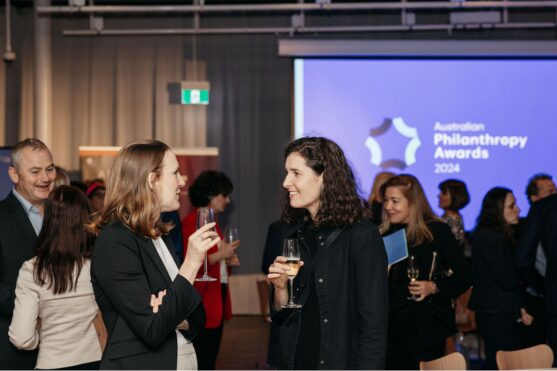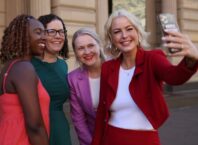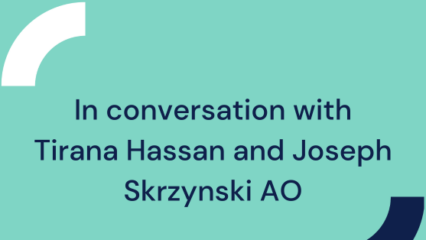Start your giving journey
Find the most effective way for you to give – as an individual, family, organisation or business – so you can focus on making an impact.

Learn and grow
Discover our collection of resources and tools to get you started, extend your giving, or support others on their giving journey.

Double giving by 2030
Our Blueprint to Grow Structured Giving outlines how the philanthropic, for-purpose, business and government sectors can work together to double structured giving from $2.5 billion in 2020 to $5 billion by 2030.

News and stories
Impressive leaders recognised with Australian Philanthropy Awards
The award recipients in the 2024 Australian Philanthropy Awards have been announced today, recognising and celebrating extraordinary achievements in contemporary philanthropy.
Australian women are set to inherit trillions – what will that mean for giving?
JBWere’s recent report, The Growth of Women and Wealth, estimates that Australian women will become custodians of more than 65% of the nearly $5 trillion in intergenerational wealth transfer in coming years – but what does that mean for charitable giving?
Rob McLean and The Nature Conservancy: ‘We wanted to be involved in an organisation that’s kicking goals’
Philanthropist Rob McLean AM is excited as he talks about kelp. He’s explaining the potential for ‘blue carbon’ and exploration of mangroves, sea grasses and regrown kelp forests potentially becoming options for carbon storage. It’s an initiative by The Nature Conservancy, a global organisation that Rob helped bring to Australia. He talks about his long and continuing involvement with the organisation and why he’s proud of its achievements.
Pathways to Politics for Women opens more doors in busy election year
The award-winning Pathways to Politics for Women program has become fully national for the first time, now incorporating Western Australia and Tasmania. Building on recent successes in Queensland local elections, organisers are calling on more future female leaders who are passionate about politics and driving positive change in their communities to apply.
Stories of giving
Stories to inspire more and better philanthropy. Read about the experiences and motivations of the donors and the causes they are supporting.
Read our stories of givingPhilanthropy Australia National Conference 2022
Our 2022 national conference For the Love of Humanity – People, Place and Planet was a feast of ideas, insights and inspiration held over 3 days.
Read moreEvents
New Gen Network: ACO up close
The Australia Chamber Orchestra invites New Gen Network members to a special rehearsal of two beloved Beethoven works, curated and arranged anew by Principal Cello Timo-Veikko ‘Tipi’ Valve. Led by Tipi, the program will feature an ACO quintet and guest pianist Aura Go. The rehearsal will be followed by drinks and canapes with the musicians.
In conversation with Tirana Hassan and Joseph Skrzynski AO: The intersection of Philanthropy and Human Rights
Don’t miss this opportunity to join us for a thought-provoking conversation on the intersection of philanthropy and human rights featuring Tirana Hassan and Joseph Skrzynski AO, renowned global leaders in the field.
Subscribe to Philanthropy Weekly
Please complete your details here to subscribe to Philanthropy Australia’s weekly e-bulletin.
* required fields





